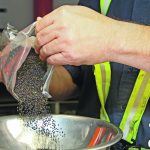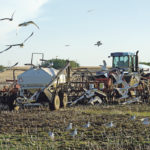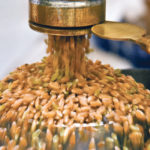Only sixty-six responses were received by Agriculture Canada’s 2021 Canada Grain Act Review request for submissions. Ag Canada didn’t post these briefs so it’s impossible to know how many came from producers, but given the number of grain handlers and farm organizations, it’s a safe bet there were no more than 30 from the tens of thousands of farmers in Western Canada. That’s sparse comment from a farm clientele that’s habitually unhappy about elevator grading and dockage.
Stories by Cam Goff

CGC must refocus on primary elevator
Created in 1912, the Canada Grain Act was largely a response to farmers’ demands for equitable grading, dockage and weights. The resulting system — producer safeguards from country elevators to port — was for many years comprehensive. At primary elevators the Canadian Grain Commission certified weigh scales, provided Subject to Inspectors Grade and Dockage (STIGAD) […] Read more

CGC must improve dispute resolution
Recently announced improvements to the Canada Grain Act’s subject to inspector’s grade and dockage (STIGAD) dispute resolution mechanism are a good thing. New provisions extending time limits and access, even deliveries by third parties, and clarifying sample rules are to be welcomed but they’re no panacea. The same goes for any other modest improvements that […] Read more

Restore grain commission’s relevance
Media discussion in the run–up to the current Canada Grain Act review has focused on two issues: cost of Canadian Grain Commission operations and alleged duplication of services as grain companies push to replace independent CGC inspection with third-party inspectors. Cost and efficiency are important, and concern would be warranted if justified by the facts, […] Read more

A solution in search of a problem
Agriculture Canada is in damage-control mode, trying to re-spin its message to farmers following “value creation meetings held late last year. Ag Canada and its partner, the Seed Synergy group, told farmers that Canada’s public plant breeding system was broken and that the federal government was not willing to increase its funding. Farmers were told […] Read more

Seed Synergy’s back story explained
By now, many farmers have heard about an ominous drive, co-ordinated by elements of Canada’s seed industry and financially aided by our federal government, that is attempting to eliminate our right to freely save and reuse our own seed. This story actually begins in 1990 when the Canadian government adopted the UPOV ’78 model law […] Read more

Grain grade system doesn’t discriminate
Contrary to the opinion piece published in the Sept. 11 Financial Post (the one Ottawa policy in NAFTA that even Canadian farmers think is unfair), Canada’s grain grading and variety registration systems are never used to prevent American grain from being imported and sold into Canada. In fact, many southern Alberta feedlots regularly import American […] Read more
Democratic rights
While I respect the Saskatchewan Party’s right to support an end to the Canadian Wheat Board’s single desk, I cannot agree with their support of having western Canadian farmers’ democratic rights stripped away. In the first instance, it is a simple and accepted principle in Canadian society to have, and express, a view on a […] Read more
Grain transport faces heavy weather
Cam Goff, a Hanley, Sask., farmer, says grain transportation matters require serious review. Goff is also a director for the Canadian Wheat Board. It seems to me that it’s time for farmers to take stock of their transportation situation. There are a number of converging issues that require our attention, and decisions to be made […] Read more
Producer loading sites needed – Opinion
Goff is a farmer in Hanley, Sask., and director of the Canadian Wheat Board board of directors. The existence of public loading sites spread across the Prairies gives farmers an additional avenue to ship their grain and provides checks and balances to the grain handling and transportation system. This helps to keep the major players […] Read more




